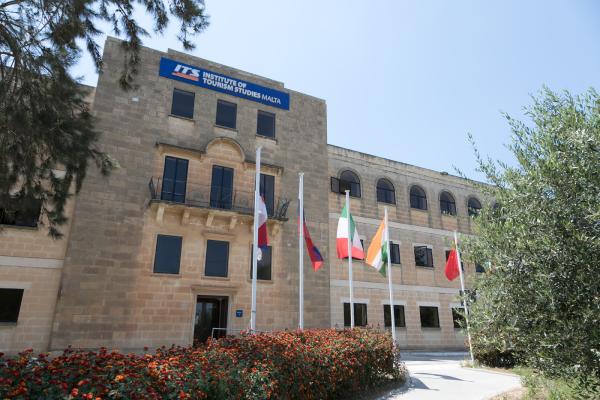
11 minute read
Institute of Tourism Studies - ITS
The Institute of Tourism Studies offers a range of full-time and part-time courses leading to a career in the Tourism industry. The courses offered are either at Foundation Level, Certificate Level, Diploma or Higher Diploma level, and three courses at the degree level. Some courses at Higher National Diploma Level also allow students to continue their studies at the University of Malta, through the Bachelor of Arts (Hons) in Tourism Studies.
Entry to the Institute of Tourism Studies takes place through a system of credits. Students who apply are awarded several points or credits for the subjects studied up to that point in time (Accreditation for Prior Learning – APL), as well as the work experience acquired in the tourism sector (Accreditation for Prior Experiential Learning – APEL).
Advertisement
The Tourism industry is important for our country, and it offers a variety of careers in different areas of the sector for those individuals who choose this career path. One can train as a chef, tourist guide, animator, travel agent, tour operator, or managerial post, among others.
European Pilot Academy
The European Pilot Academy (EPA) was founded to provide a holistic aviation education. It is located at the Malta International Airport, overlooking both active runways. Thus, the academy is in an ideal location for students.
The academy is organised into four aviation educational levels: Air Cadet Level
Private Pilot Level Commercial Pilot Level Airline Transport Pilot Level http://www.europeanpilotacademy.com/careers/
Malta College for Art, Science and Technology - MCAST
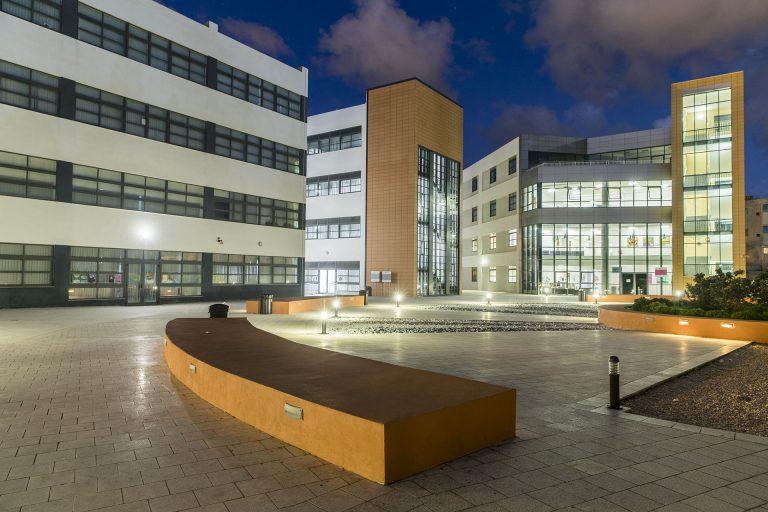
MCAST is a vocational college offering diverse training programmes at different academic levels in preparation for various careers. The college, through its Institutes in Malta and Gozo, offers full-time and part-time vocational courses ranging from certificates to master’s level degrees.
The MCAST Institutes are the following:
Institute of Applied Science: This Institute offers students the opportunity to further their studies in the sciences field. Related career opportunities include health administrator, environmental health practitioner, laboratory analyst/technologist, pharmacy technician, medical representative, and environmental engineer.
Institute for the Creative Arts: This Institute offers career opportunities to those students interested in art and design. These careers include restoration, 3D design, media opportunities (publications, websites, brochures, and advertising), video editing, filming, ceramics, jewellery, graphic design, web designer, and photography, among others.
Institute of Engineering and Transport: This Institute offers career opportunities in construction and other sectors related to the building industry. Career options related to this field are those of builder, refrigeration technician, plumber, tile layer, plasterer, welder, and draughtsperson.
Institute of Business Management and Commerce: This Institute offers career opportunities related to commerce and financial services. Career options related to this field are those of clerk, insurance clerk, financial services, advertising and promotion of products, enterprise, and customer care.
Institute of Community Services: This Institute offers courses to those students interested in essential services in the community such as hairdressing, sports, beauty therapy, health and social care, nutrition, and kindergarten assistants.
Institute of Information and Communication Technology: This Institute offers courses on hardware, programming, network installation, and other areas related to Information Technology. Subjects required in this sector are Mathematics and Physics, Business Studies, Accounts, and Computer Studies. Some of the career options include programmer, computer technician, network administrator, web designer, system analyst/designer, and software developer, among others.
Accounting
Accounting is a process of identifying, recording, evaluating, interpreting, and communicating business information.
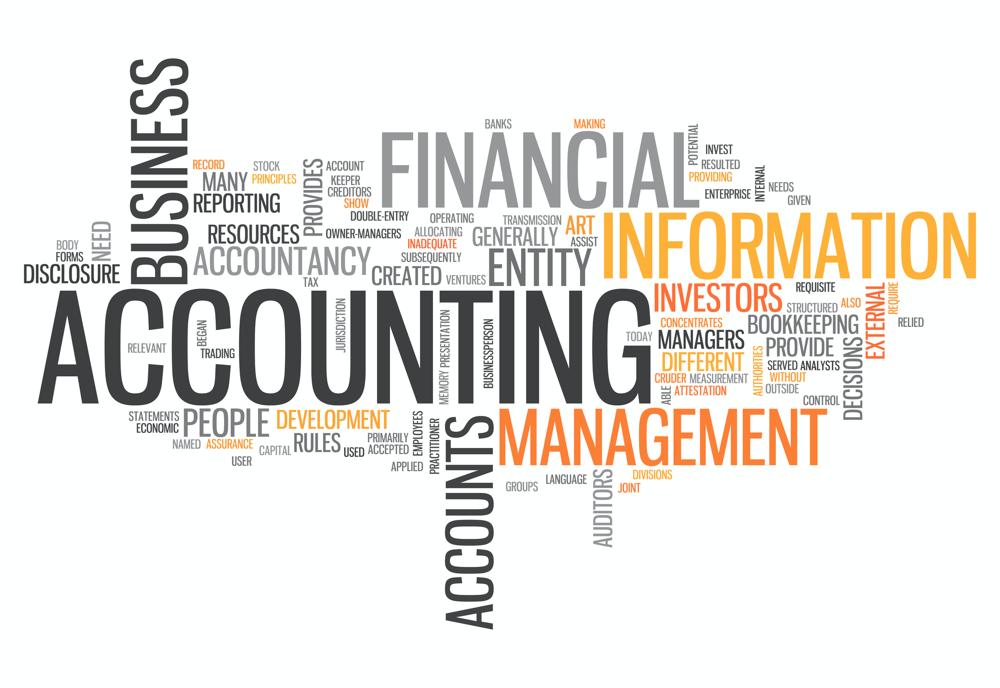
Objectives
Accounting students need to be able to:
• record the daily transactions of profitmaking and non-profit making organisations
• present this financial information in the form of Financial Statements
• evaluate the performance and the position of the enterprise
• apply the financial data to make simple financial decisions
As from the scholastic year 2022-2023, the new accounting syllabus based on Learning Outcomes will acquaint students with the following 10 LOs:
• The nature and purpose of accounting and financial literacy
Þ Recording financial transactions and preparing basic financial statements
• Maintaining an accounting system
• Two-column cash book and bank reconciliation statements
• Accounting for end-of-period adjustments
• The statement of profit or loss and the statement of financial position and the end-of-period adjustments
• Cost classification, break-even, and manufacturing accounts
• Control accounts and correction of errors
• Single entry and incomplete records
• Accounting ratios and departmental accounts
• Knowledge of accounting enables students to understand the language of businesses; and gives them a more logical attitude toward approaching financial situations in their personal life. It is an asset on students’ portfolios and can open the doors to many exciting job opportunities in different sectors
Jobs related
• Accounts clerk/officer/executive
• Credit Controller
• Payroll Executive
• Accounting technician
• Accounts Assistant/Junior accountant
• Cost and Inventory manager
• Accountant
• Financial analyst
• Financial controller
• Auditor
• Consultant
• Fund administrator
• Costings and Stock analyst
Apart from various courses at MCAST and the Faculty of Economics, Management, and Accountancy at the University of Malta, students also have the option to further their studies on a part-time basis by taking up an ACCA course, while gaining experience from full-time employment.
This course is mainly aimed at those seeking a career in financial services. This career is closely related to excellent employment opportunities in accounting and finance.
There is a big demand for accountants in Malta, so accounting students have promising prospects of future employment
Students will be assessed on the Learning Outcomes in the following way:
Coursework:
(30% of the total marks; consisting of 5 tasks of equal weighting i.e., 8% each) set during the three-year course programme.
Controlled assessment:
70% of the total marks; comprising a two-hour written exam) set at the end of the programme and differentiated between two tiers:
- MQF levels 1 and 2; -
- MQF levels 2 and 3.
The new syllabus can be viewed here: https://www.um.edu.mt/__data/assets/ pdf_file/0007/470338/SEC01Accounting Syllabus2025.pdf
Biology
Objectives
Biology students need to be able to:
• Acquire knowledge and understanding of basic anatomical and physiological characteristics of organisms
• Identify interactions
• Between organisms
• Between organisms and their environment
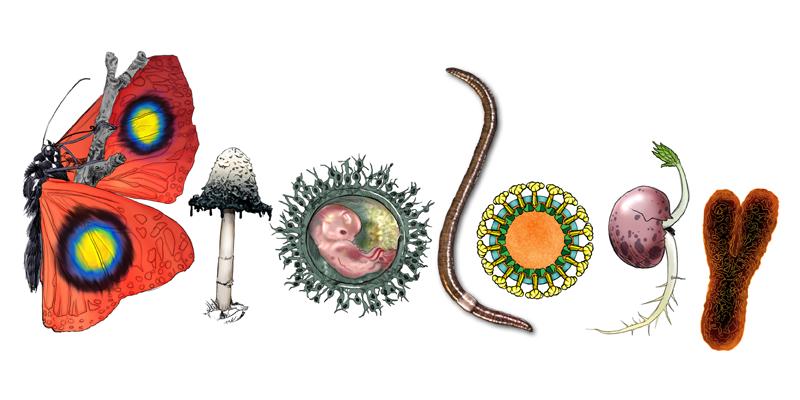
• Associate the role of humans in the conservation and destruction of the environment
• Distinguish between the personal, social, political, economic, technological, and environmental implications of Biology
• Develop a scientific approach to problemsolving which includes the assessment and interpretation of experimental data
• Acquire a range of manipulative and communicative skills appropriate to Biology
• Develop a working knowledge of other fields of study (e.g., Mathematics, Chemistry, Physics, Geography, etc.) which are necessary for a proper understanding of biological concepts
• Obtain a worthwhile educational experience, whether the students intend to study Biology beyond this level or pursue a career requiring knowledge of Biology
Jobs related
• Biology alone: Lab technician, Scientific research, Psychology, Health Care professions, Communication therapy
• Biology and Chemistry: Doctor/Surgeon, Veterinarian, Pharmaceutical scientist, Dentistry, Podiatry, Medical laboratory technician, Scientist
• Biology and Home Economics: Nutrition, Dietitian, Chef, Hairdressing and Beauty therapy studies
• Biology & PE: Sports psychologist
• Biology and Geography: Earth systems courses, Agricultural sciences courses
• Biology and Health & Social Care: Playworker, Day-care/Care worker, Youth community worker, social worker, Health care professions
Coursework:
During the 3-year course, the students will be doing several experiments. These will involve experiments, investigations, site visits, and fieldwork (30% of the total marks)
All these reports are compulsory and if they are not done, the parents/guardians are informed straight away.
Controlled assessment:
70% of the total marks; comprising a two-hour written exam)
The new syllabus can be viewed here: https://www.um.edu.mt/__data/assets/ pdf_file/0004/470380/SEC042025.pdf
Chemistry
Chemistry is a branch of science that focuses on the composition and properties of matter and the related changes. It is far more than a collection of facts and a body of knowledge; in fact, it goes beyond and extends to calculations and hands-on experience. It’s all about the matter, which is anything that has mass and occupies space. Everything that surrounds you is made up of matter and chemistry is everywhere around you.
Substances can react and change from one form to another to create new products. These are chemical reactions that will be dealt with during the chemistry course. There are various sections of chemistry, including but not limited to: organic, inorganic, analytical, and physical.
Chemistry is a science subject that should be chosen by those who would like to acquire a deep understanding of science and be able to further their studies in a related field. The fields into which Chemistry branches are numerous many science-related University degrees require chemistry as an entry requirement. Those interested in the following careers are encouraged to study chemistry.
One of your main goals in life is to understand everything around you. Chemistry surely goes into such depth through its theory.
Jobs related
Chemist - A scientist specialising in chemistry who may opt to do various jobs, going from analyst to teacher to researcher.

Chemistry educator - A teacher or lecturer who teaches chemistry.
Medical doctor - A professional who specialises in curing unhealthy and sick people. Doctors may also opt to specialise in a particular area of medicine to become surgeons for instance.
Dentist - Professionally known as a dental surgeon, specialises in the treatment of teeth. A dentist may further specialise in areas such as orthodontics to treat irregularities of the teeth and jaws.
Nurse - A professional who assists the doctor and helps patients recover. The job is usually carried out in a hospital.
Pharmacist - May wish to work in a pharmacy selling medicine or else testing medicine in the industry.
Chemical analyst - A chemist who analyses and develops chemicals, medicine, oils, and others. These experiments are usually carried out in industrial labs.
Biochemical analyst - A scientist who analyses body fluids such as blood. These tests are usually carried out in hospitals or clinics.
Forensic scientist - A scientist who specialises in crimes by collecting data from crime scenes and processes it scientifically to arrive at the culprit.
Chemical engineer - A scientist who also knows to engineer and works in the industry to design and develop new products from starting materials.
Geochemist - A chemist with a specialisation in geology who focuses on the study of minerals and rocks.
Science writer - A writer or journalist who has the capability of writing scientific articles and making scientific research readable to academics or people interested in science. The new syllabus can be viewed here: https://www.um.edu.mt/__data/assets/ pdf_file/0006/470382/SEC062025.pdf
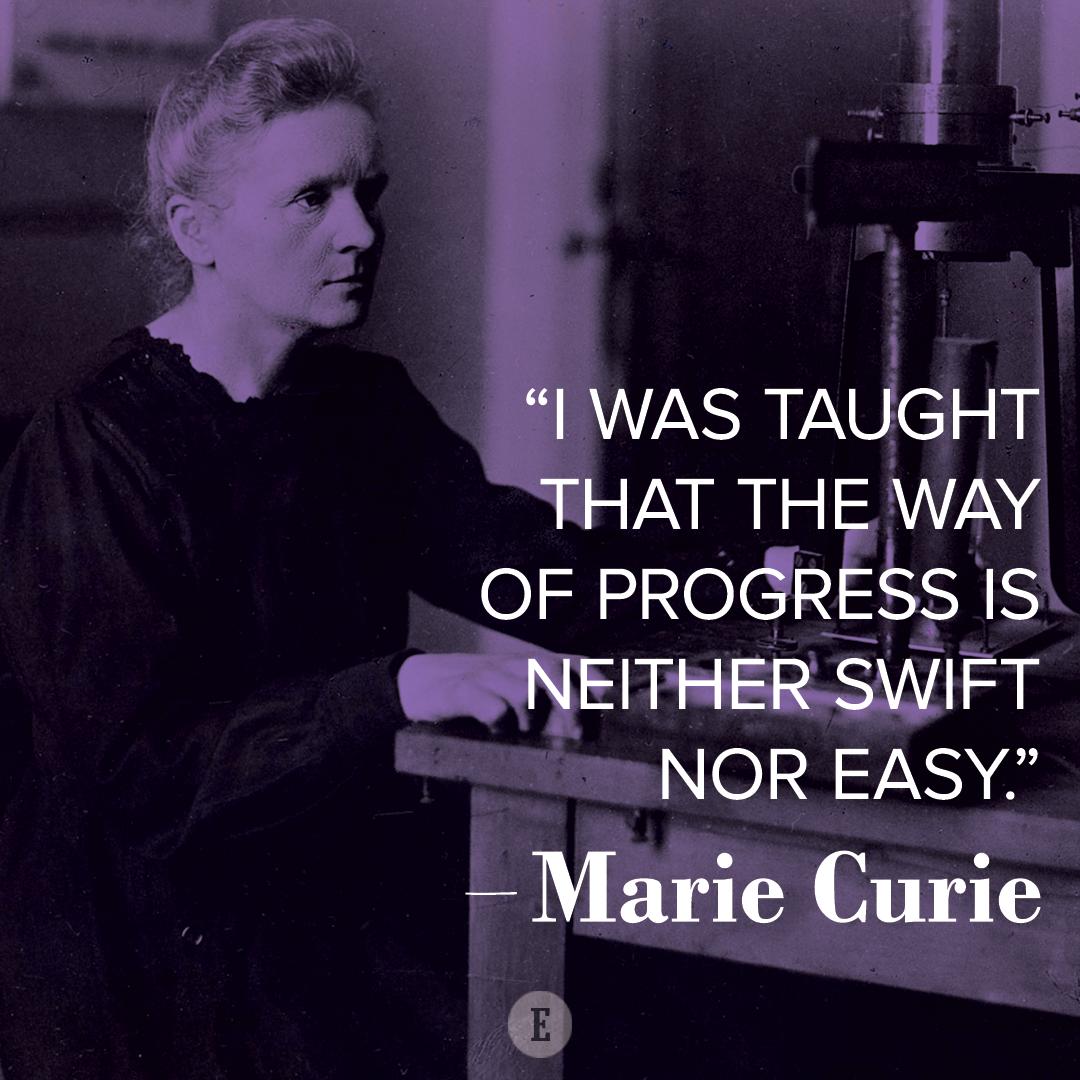
Computing
Computing is a subject related to the science behind the technology we use in our everyday life. The subject aims to help you understand in a technical way how major computing components work and the art of programming behind hardware functionality. This subject is oriented toward students who would like to pursue their knowledge beyond the daily use of common computer functionality.
architecture, software systems, graphics, artificial intelligence, computational science, and software engineering. Jobs related to computing are increasing each day as the technical world is becoming more and more powerful as time passes by.
ICT based on the C3 syllabus is based on the general requirements for a common computer user. It gives basic ideas of computing history, computing hardware, and software and makes use of basic programming tools.
Computing based on the new syllabus assumes the students have a good understanding of ICT concepts and builds up on more technical aspects such as hardware programming, the use of operating systems, and detailed programming structures.
Computing also has strong connections to other disciplines. Many problems in science, engineering, health care, business, and other areas can be solved effectively with computers, but finding a solution requires both computer science expertise and knowledge of the application domain.

Finally, computing has a wide range of specialties. These include computer
Requirements
You should be able to carry out research and reading on your own. Knowledge of ICT and Mathematics will be very helpful. This subject will help the students in various areas, these include:
- The ability to understand how a computer works and obtain practical skills which help them manage their computer systems and other devices with ease.
- Create tailor-made software which allows the computer to perform a particular task required by the student. Therefore, students become able not only to use software but to create it themselves.
Through this course, we will study various interesting topics such as:
Hardware functionality: E.g., Studying the interior of a computer system
Software creation: E.g., Creating simple programs and websites
Databases
System Analysis: The process of changing a software system within a large business Software Laws: Data Protection Act and the Copyright law Operating Systems and Networks
Jobs related
There are many courses available either related to computing only or in combination with other subjects. It is a helpful subject to those wishing to pursue a career in the computing sector such as System analysis – Contributes to and supports a business that is changing the software system.
Webmaster/developer– Controls, uploads, and monitors business websites. Junior Software Developer / Programmer –There are various businesses where programming is required. This job is always in high demand. System engineer / IT Administrator/analyst–A person responsible for a business or entity's IT system. IT, Game designer/analyst.
What do you obtain from Computing as an option?
• You will understand well how computers perform their functions to apply a task
• Learn to program basic content
• Develop good logic skills
• Develop problem-solving skills
Further study of the subject will open many opportunities in various sectors. Students can opt for various courses and institutions once they have a good passing mark in the subject. Some courses are:
• A level or Intermediate Level in Public or Church Sixth forms.
• Various courses at MCAST.
• Various courses at private institutions such as St Martin’s College.
• Courses at the University level either as a main subject or combined with other subjects such as Accounting Computing, and Mechanical Engineering.
SEC Projects preparation
Throughout the 3 years of the course, the students will prepare 4 projects. These carry up 40% of the final mark.
• Programming set up of a hardware device (chipset provided by the school).
• A simple program using the Python Language with graphics.
• A detailed program to perform a simple game without graphics. Ex: Hangman.
• A research topic, where students will be required to create a video or digital chart, or a presentation.
Controlled assessment:
60% of the total marks; comprising a two-hour written exam)
The new syllabus can be viewed here: https://www.um.edu.mt/__data/assets/pdf _file/0007/470383/SEC092025.pdf
Economics
Economics is the study of scarcity. Resources are limited, and every society wants to figure out how to allocate its resources for maximum benefit. The field of economics serves in large part to help answer this resource allocation question.
As from the scholastic year 2022-2023, the new Economics syllabus based on Learning Outcomes will acquaint students with the following 9 LOs:
• Basic economic concepts and resource allocation (coursework & controlled)
• The price mechanism and its application to markets (controlled)
• The Production function in the short run and the long run (Production & Costs) (controlled)
• National Income: measurement, interpretation, and determination (controlled)
• Inflation and Unemployment (coursework & controlled)
• International trade (controlled)
• Economic growth, economic development, and the distribution of income and wealth (coursework & controlled)
• Macroeconomic policy (controlled)
Students will be assessed on the Learning Outcomes in the following way:
Coursework:
30% of the total marks; consisting of 4 tasks of equal weighting i.e., 8% each) set during the three-year course programme.
Controlled assessment:
70% of the total marks; comprising a twohour written exam) set at the end of the programme and differentiated between two tiers
- MQF levels 1 and 2; MQF levels 2 and 3.
Necessary Student skills:
• communicate ideas clearly and fluently in English perform numerical calculations with confidence Draw graphs, analyse, and interpret data Further studies
• At B. Comm. level, Economics may be taken with Accountancy, Banking, Finance, Management, Marketing, or Public Policy. After that one may specialise in the subject by taking up the B. Comm. (Hons) degree in Economics. For further information, see http://www.um.edu.mt/fema
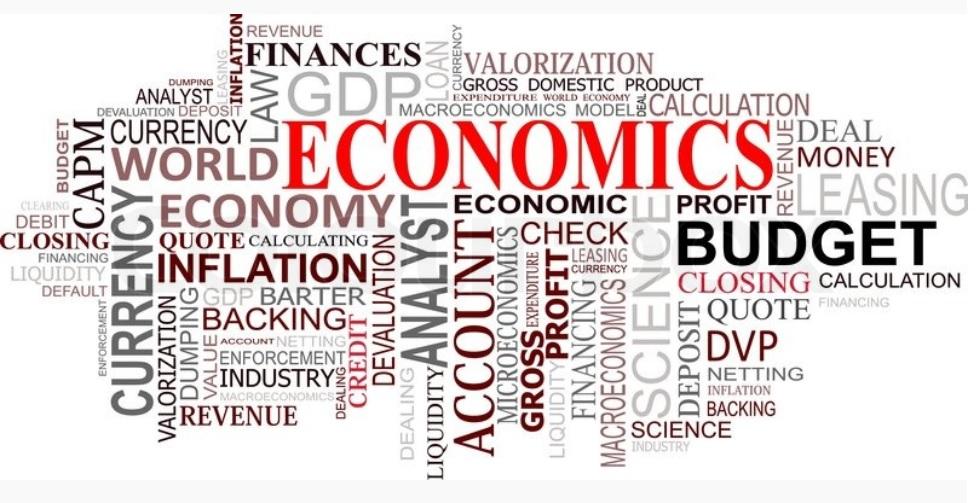
Jobs related
• Economics makes students aware of what goes on in the economy, making them informed and critical citizens.
• lead to rewarding careers in the public sector, banking, Insurance companies, and other financial services and in private consultancy (Investment banks, Stockbrokers), manufacturing firms, and universities.
• marketing, human resource management, accountancy, research, actuarial work, management consultancy, and journalism.
The new syllabus can be viewed here: https://bit.ly/3LzFh1h




